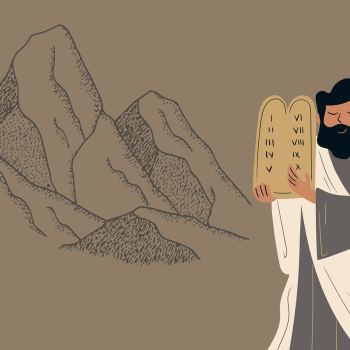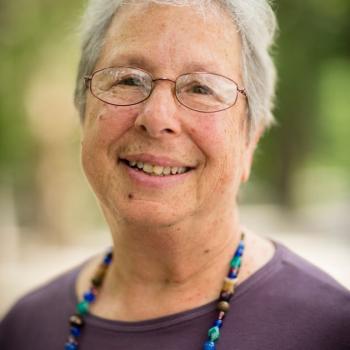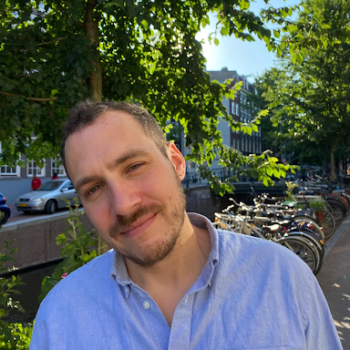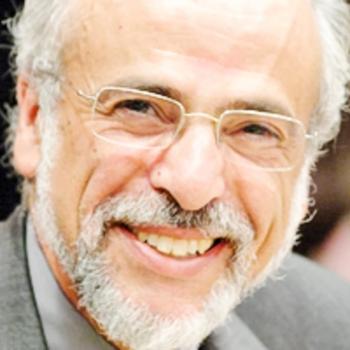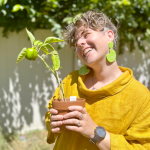By Jayce Koester, Hebrew College Rabbinical Student
Parashat Balak Numbers 22:2-25:9
In this week’s Torah portion, Bil’am—a non-Israelite diviner—gets caught up in a mess that ordinarily would be none of his business. Balak, the king of Moab, summons Bil’am to assuage his fears of being overrun, and commands him to curse the Israelites. Bil’am is quickly informed by G!d that no curses are on the agenda and Bil’am, to his credit, seems to take that in stride and does not argue with G!d. That said, he is still unable to discharge his obligation to Balak. Throughout the course of the parashah we meet a king, an angel, Bil’am’s long suffering donkey, and a variety of nobles from Moav—and Bil’am manages to upset all of them. Bil’am is having a frustrating week where nobody seems impressed with his performance.
This year has raised questions for many of us about impossible situations, and what it means to have no choices available that won’t disappoint someone. Likely, someone we care about. Often I find myself believing if I simply work or think harder, the situation will feel easier. Sometimes we are so in the middle of trying to make everything work, that we cannot see the rock and the hard place we are lodged between. We cannot always out-think impossible situations. Bil’am cannot undo being summoned by the king, nor escape G!d’s mandate about blessing. This week I find myself turning to Bil’am as a teacher. After I’ve accepted an impossible position, what happens next?
In Bil’am’s story he fails two curse attempts after being set up to curse—and instead blesses the Israelites. After his first two failures, and before his last, Bil’am seems to have a revelation.
וַיַּרְא בִּלְעָם כִּי טוֹב בְּעֵינֵי יְהֹוָה לְבָרֵךְ אֶת־יִשְׂרָאֵל וְלֹא־הָלַךְ כְּפַעַם־בְּפַעַם לִקְרַאת נְחָשִׁים וַיָּשֶׁת אֶל־הַמִּדְבָּר פָּנָיו׃
And Bil’am saw that it was good, in the eyes of HaShem, to bless Israel, and he did not set forth like he had time and time before to see practitioners of divination, instead he set his face towards the wilderness. (Numbers 24:1).
Something has shifted for Bil’am. Even though G!d has told him many times his attempts to curse will fail, this time he finally sees. Rashi imagines what Bil’am might have said, interpreting his seeing as a new integrated understanding אֵינִי צָרִיךְ לִבְדֹּק עוֹד בְּהַקָּבָּ”ה, כִּי לֹא יַחְפֹּץ לְקַלְּלָם: I do not need to further examine haKadosh Baruch Hu because he does not want to curse them (the people). When Bil’am finally sees “what is good” he is able to accept that he cannot satisfy both Balak and G!d. It is in this moment of acceptance that Bil’am interrupts his previous routines, accepts his reality, and sets his face towards the wilderness.
This phrase, וַיָּשֶׁת אֶל־הַמִּדְבָּר פָּנָיו and he set his face towards the wilderness struck an immediate chord for me. What is the wilderness? What was it about his newfound seeing and understanding, that allowed him to face it? The moment of acceptance, ceasing to resist impossibility and instead embracing it, opens us up to an unknown wild beyond certainty. That wilderness is daunting, but as we see illustrated in the text, it becomes symbolic of a deeper and clearer understanding.
When Bil’am begins to utter his third and final blessing, this one after he has set his face to the wilderness, he describes himself as הַגֶּבֶר שְׁתֻם הָעָיִן the man of opened eye and נֹפֵל וּגְלוּי עֵינָיִם bowed with uncovered eyes (Bamidbar 24:3-4). Something has fundamentally changed for our protagonist. He engages G!d, himself, and the people around him in the context of the wilderness; his eyes are wide open and while bowed he sees clearly. He is about to be rebuked by Balak and refused any payment. There is a real material cost to this final act in the wilderness for Bil’am. As for many of us, there are real material costs to being in impossible situations. Yet, we find ourselves in them, and we must try our best to stay in dialogue with our values, lived realities, and complexities as we navigate them.
It is only through this wilderness of impossibility that Bil’am utters a blessing many of us sing regularly, and has become a crucial part of our own imagination of what it means to bless and be blessed. He says:
מַה־טֹּבוּ אֹהָלֶיךָ יַעֲקֹב מִשְׁכְּנֹתֶיךָ יִשְׂרָאֵל׃ כִּנְחָלִים נִטָּיוּ כְּגַנֹּת עֲלֵי נָהָר כַּאֲהָלִים נָטַע יְהֹוָה כַּאֲרָזִים עֲלֵי־מָיִם׃
How good are your tents Yaakov, your dwellings, Israel. Like groves stretched out, like gardens beside a river, like aloes planted by YHWH, like cedars beside the water (Numbers 24:5-6).
I’m sitting with Bil’am as a teacher this week. Wilderness gives way to transformation, but only when we allow ourselves to face it. Uncertainty is the most generative space in our lives. Throughout history, our greatest blessings have sprung forth from wells of wilderness, change, and rocky hard places. When placed in an impossible situation Bil’am allows himself to be changed and opened, and out flows blessing.
Jayce Koester (they/them) is a teacher and ritual-lover entering their fourth year in the rabbinical program at Hebrew College. Currently they serve Shir Tikvah Minneapolis and Betenu as a rabbinic intern. Jayce loves learning Torah with all ages and is an enthusiastic davener, eager Talmud student, and lover of all things that grow (people included). They’re always excited to talk about ritual, science fiction, their two cats, and what they’re cooking this week.





